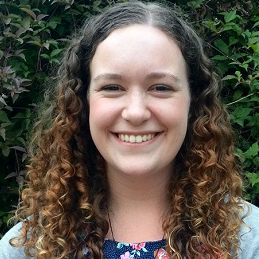 Thursday 23 August 2018 9:40am
Thursday 23 August 2018 9:40am
Alexandra Kitson
There are calls from a University of Otago planning graduate for greater recognition and involvement of iwi and hapū surrounding the development of city spaces.
Alexandra Kitson (Ngāi Tahu) examined two residential developments in Christchurch developed by Ngai Tahu Property as part of her Master of Planning thesis.
Both developments illustrated a number of Māori urban design principles, derived primarily from mana whenua priorities and practices. She found these consultations had a significant influence on decision making and the final physical forms of these projects.
Her thesis is part of a wider study examining urbanisation and post Treaty settlements in First Nations in Canada and Ngāi Tahu in New Zealand. Head of Department of Geography, Professor Michelle Thompson-Fawcett, is co-ordinating the project along with Dr Janice Barry of University of Waterloo in Canada.
Alexandra says the research illustrates the importance for direct Māori consultation.
“I'd like to think it highlights progress and a shift in thinking about urban design and encouraging people to engage with iwi or hapū to consider how they see themselves in spaces, whether that be urban or rural.
“Hopefully it encourages people to think a bit more outside the box and consider more than one narrative to a landscape.”
She says the research has helped her understand cultural representation within urban spaces.
“It has also helped me understand the different ways we can see ourselves in these spaces, and I think most importantly for Māori to see themselves in colonised spaces.
Professor Thompson-Fawcett says the interesting work highlights the importance and benefits of Ngāi Tahu Property's strategic decisions.
“We are in this post-Treaty context where you now have an iwi being able to operate as a property developer to create economic returns,” she says.
“In many respects, they operate as a conventional property developer and can be seen by decision makers as a property developer.
“But they're operating under a different mandate. One of the key differences is they have a long term, never diminishing obligation back to Ngāi Tahu and all the local runanga they may be operating with.”
Alexandra, who graduated on August 18, has since started working as an environmental advisor with Ngāi Tahu.
She says there are a number of benefits to having consistent discussions with iwi and hapu throughout developments, as Christchurch rebuilds post-earthquakes.
“It's the setting up of advisory boards or groups with some time to help with that engagement and having that korero in a meaningful way.
“It's important because it can really create a space that's enjoyable and reflects a wide variety of values.”
For more information, contact
Alex Kitson
Environmental Advisor
Te Rūnanga o Ngāi Tahu
Email alex.kitson@ngaitahu.iwi.nz
Matiu Workman
Communications Advisor (Māori)
University of Otago
Mob 64 21 279 9139
Tel 64 3 479 9139
Email matiu.workman@otago.ac.nz
A list of Otago experts available for media comment is available elsewhere on this website.
Electronic addresses (including email accounts, instant messaging services, or telephone accounts) published on this page are for the sole purpose of contact with the individuals concerned, in their capacity as officers, employees or students of the University of Otago, or their respective organisation. Publication of any such electronic address is not to be taken as consent to receive unsolicited commercial electronic messages by the address holder.
